- Home
- Arthur Stone
Alpha Zero (Alpha LitRPG Book 1) Page 2
Alpha Zero (Alpha LitRPG Book 1) Read online
Page 2
And the future far less certain now that she has two kids to raise on her own. Finding a new husband here is hardly realistic.
This land is rich with widows, making competition among the fairer sex quite fierce. And Teshimi’s widow is neither a beauty nor young, by peasant standards.
Up on her feet, Treya graced me with a smile and offered her hand.
“Come inside, my dear boy. It’s chilly out, and you haven’t your strength.”
That much was true. I don’t have my strength—or anything else, for that matter.
I am a zero, capable only of drawing breath once the amulet is discharged.
And barely capable, at that.
With an inhuman effort, I grabbed mother’s hand and willed myself to my feet.
It wasn’t the getting up part that was truly difficult. Sure, it was far from easy in my present state, but it couldn’t compare to the worst part.
The worst part was holding mother by the hand.
The same hand with which she had ripped out my heart.
Chapter 2
The Financial Crisis
Degrees of Enlightenment: Empty
Attributes: none
Skills: none
States: none
“Teshimi was our finest harvester. There’s no replacing him. He was the only master harvester who had achieved rank nine in Deep Spices skill.”
At that, mother scoffed. “That’s merely omega. Forget about Teshimi. Teshimi is a nobody.”
A categorical statement, but not enough to silence Camai.
“Still, we have no one else. And nowhere to recruit from. Which means no spices for the foreseeable future.”
Camai prefers silence in all situations. A warrior born to a warriors’ order, where speech is far from a prized value, there had been week-long stretches when he spoke fewer words than this in my presence. I nearly dropped my two-pronged fork at this sudden outburst of eloquence. Granted, it was uncomfortable as hell to hold, and so bloody narrow that if you shaved another fraction of an inch, you could call it a chopstick. On the plus side, it did wonders for the fingers’ motor functions—as did the rest of the traditional local utensils.
Except for my own stubborn fingers, which apparently never got the memo.
Mother, for her part, was equally oblivious to my failures.
As she was to most things...
Unfazed by the comment about the spices, Treya was peering into the local equivalent of a newspaper with keen interest. It was a scroll of cruddy rice paper slotted into a simplistic device comprising a pair of wooden rollers set a couple of hand-widths apart. Slowly turning the lower handle unfolded the rolled parchment affixed to the higher one, allowing the reader to peruse the full text without touching the flimsy material unnecessarily.
Camai always brought back the same exact thing: a monthly bulletin of the Empire’s most significant tidings and social happenings. Mother’s desire to be cited in these annals was as evident as a fox’s dream of snatching itself a fattened rabbit. And it was laughable—I had a better shot of being recruited into an elite guard troop than she did of meriting even a passing mention.
Getting no reaction to his words, Camai continued.
“Without spices, how are we going to pay for maintenance of your son’s amulet?”
Uh-oh, it’s getting real now. This wasn’t something mother would just ignore.
And she didn’t.
“We’ve got plenty of rye in our granary. We’ll sell some of the supplies while we look for a new master harvester. We’re going to have spices again.”
Camai shook his head.
“Those supplies are of seed rye, Mistress. If we sell it, we won’t be able to sow a new harvest.”
“I did say that we need to replace Teshimi, didn’t I? The wretch stole for his worthless kids, and the new master harvester won’t dare repeat his mistakes, knowing what kind of fate befell his predecessor. We’ll end up with spices to spare—enough to buy back all the seeds we’ll need. Don’t you worry about that.”
“But I am worried, Mistress. It is my duty to worry about Clan Crow’s prosperity,” Camai said, turning up the pathos to mimic mother’s. “We’re not going to find another master harvester on Teshimi’s level. He alone could grow fine spices on this miserly soil. There’s no replacing him. There’s not going to be any more spices. Rye is all we have to rely on. Except it isn’t worth much, and we don’t have a lot of it. We don’t have a lot of anything, in fact, which is why the farmers go hungry every winter. The soil is just atrocious. Teshimi wasn’t stealing for himself. The peasant kids are ailing—primarily from hunger. He alone was in a position to get them food. So he risked everything. Not just for his kids, either. He fed them all—his own children, and those of his neighbors.”
I could hardly believe my ears. A year’s worth of words for Camai, condensed to a single monologue...
At last, mother looked up from her reading material. She gave the warrior a hard stare, hissing her next question, serpent-like.
“You’re saying he fed other people’s kids?”
“Yes, Mistress.”
“And I am finding out about it only now?”
“I myself have only found out an hour ago, Mistress. I knew Teshimi well, and found it hard to believe he would be so foolish. It’s just not realistic to have the theft go unnoticed. So I surmised he must have been sharing with others to keep them quiet. I put some pressure on a few peasants with a reputation for loose tongues. Turns out your laborers had assembled in secret some time ago. They were desperate. Their children were starving, and they had no spices, which is harmful for developing their attributes. Children are the future for even the lowliest worker. So it was decided at the gathering to exchange the stolen spices for food. This is why nobody ratted on Teshimi. If he hadn’t screwed up the accounting himself, he could have continued thieving, and we’d be none the wiser.”
“So it’s a conspiracy,” Treya stated in the same unsettling tone. “I want the conspirators rounded up and punished immediately.”
“This brings us to our second problem, Mistress. Forget the spices for a moment. Yes, stealing from the clan is punishable by death. But what do we do if all of your shudras are guilty? All of them, without exception. Do we execute the heads of all the families? If so, we’re going to end up with not even a handful of rye. Women and children aren’t capable of tilling the land while fighting off predators from beyond the river. We’ve been balancing on the brink of destitution for a while now. Teshimi’s death brings us one step closer to the edge. Executing all the men, however, would be more than just another step, but an outright leap into the abyss. We will lose everything we have left.”
Though mother was prone to hovering in the clouds much of the time, she would occasionally enjoy stretches of enlightenment. Too bad those were as infrequent as they were short-lived.
Staying her nascent demand to rouse in the middle of the night the entire population of the only village under her rule turned out to be one of them. She bit her lip nervously instead.
“Are you certain that all the men are involved?”
Camai nodded.
“After thoroughly interrogating two different sources, I am. I bound them by the blood oath, and their accounts were identical. Everyone is involved, including the steward and both of your guards. I must admit, I too deserve punishment for being ignorant of all this until now.”
“We cannot allow it,” Treya drawled musingly. “Stealing from the clan is still stealing from the clan. There’s only one punishment that fits the crime, and there cannot be any other.”
“The entire Crow Clan is just you and your son,” Camai said. “There’s no one else—only the two of you are left. And your son’s life is contingent on the amulet that requires constant recharging by the master of the artifactory. I cannot imagine how we can keep doing it without spices, but let’s say we find a way. Without the harvest, though? Not a chance. Rye may be cheap, but it’s still i
ncome. Our only source of income. This land is too poor—the shudras are barely making ends meet even without having a clan to support. Think of how things were before, Mistress. We struggled to live within our means, each new year more difficult than the last. Farmers dying, harvests failing. By ordering to kill all the men, you’ll be setting the clan up for a blow from which it will not recover. Think of your son’s life. We barely have enough funds to cover the next charging of the amulet. If you still have some personal treasures, that might be enough for two. That is all. After that, I have no idea what we’re going to do. Forgive me, Mistress. I’m ready to die for you and for your clan, but I cannot replace all of your shudras.”
Rising silently, Treya headed into her private quarters. There was a rattle of both of her chest lids opening and closing, and then she was back to place three things on the table: a silk pouch, a nephrite-encrusted coffer, and a third object resembling a miniature vase made of murky reddish glass with a sealed mouth. Looking at it from the corner of your eye, you might think you were seeing red-hot embers smoldering behind opaque walls. There was one other thing I knew about this item: no matter how cold it might get in the house, you could always touch it and feel warmth.
When encountering strange things—which were in abundance in my new life—I’d gotten into the habit of assigning them familiar names from my native Earth. Though I made exceptions in certain cases—when the new words made particularly strong impact.
And then there were those instances when I simply couldn’t think of an appropriate association.
And this item, known among the locals as abunai, fell squarely into the latter category. Try as I might, I just couldn’t come up with a similar word from normal human vocabulary. It was so bloody complicated that a sentence wouldn’t be enough.
Hell, a sentence wouldn’t elucidate even ten percent. You’d need a short story explaining numerous aspects of the local society as a whole, and of each individual comprising it in particular.
The society aspect was simple enough. Absolute feudalism with aristocratic clans perpetually vying for a larger piece of the pie, meaning power and resources. The emperor was far from a figurehead, but carried his own distinctive features that would take a while to explain, only I was admittedly ignorant of most of them.
The abunai was the shine of the Crow Clan. If you were to believe all of mother’s ravings, this hideous excuse for a vase was as old as the Universe itself. And throughout all this time, at some point in their life, every distinguished representative of this inbred feudal posse would perform a ritual here that I couldn’t hope to describe using familiar Earthly analogues if I tried.
An itay was a hara-kiri of sorts, only not physical and not quite as radical. More like taking a ritual Samurai knife, sticking the knife into your belly one inch deep, and stopping there. Then donating the resulting blood to a blood bank.
No sense wasting resources.
Except, in this case, the blood bank was the abunai, and in place of blood, one’s chi energy was sacrificed. Needless to say, there was no such word in the local language, but that was the closest equivalent I could think of. Probably not optimal, but oh well.
In this world, chi wasn’t some theoretical substance to be derided as fantasy, but as real and measurable as electricity. The phenomenon had been thoroughly studied and conscripted to serving the common good. And not by people, either, but by the very higher powers to which the locals were known to attribute everything under the sun.
And whose existence even I—an erstwhile hardened skeptic in my own right—could no longer deny.
Here, even the worst degenerate tried their best to follow the path of enlightenment. Again, that was my own terminology. The locals called it something else, but the meaning is similar.
There was simply no other way, as the path combined both physical training and an education in one package. And an internship of sorts, as it enabled learning many professions sans instructors or prolonged field work. Of course, it was still better with an instructor, sometimes by orders of magnitude. Still, it was sufficient to achieve a fundamental understanding and independence. All you needed was the corresponding degree of enlightenment.
And one additional factor, which couldn’t possibly be explained in short form.
The coffer. Now that concept would take the longest to explain. Not the coffer itself, but its contents. The receptacle stored items without which walking this path of self-perfection would be akin to driving a vehicle without engine or wheels.
Or body.
Of the three things brought by Treya, the silk pouch was the simplest. It contained the clan’s treasury. A big word for the pittance it actually contained: several small silver pieces and a handful of copper ones. Alas, the Crow was a long-time resident of the poor house. It was thanks only to the loyalty of the hereditary shudras that we were still on the map at all.
Camai knew all this better than me. He could have whooped with delight and proclaimed, “We’re rich! We’re saved! Let us throw a feast for all of the Borderlands, to which we’ll invite minstrels and flesh peddlers!” Instead, the warrior impassively replied, “This isn’t enough. The treasury cannot fund even a single charging of the amulet. You need spices and symbols... And so does your son. And their amount is likewise too little. Your clan is in for harsh times, Mistress.”
“As if we’ve been living it up lately...” mother replied, biting her lip with a distant expression.
Her mind was now clearly focused on solving one simple question: how would she pull us out of the cramped and malodorous place into which she herself had cast us? Sadly, finances were never Treya’s strong suit, and her lexicon apparently lacked the space for the word “compromise.” Money rarely lasted long in her purse while decisions that pushed us deeper and deeper into the foul and inescapable pit of despair were made with lightning speed and nary a regret.
At least, no remorse was ever made manifest.
The upshot was that we were broke, no opportunities for improving our financial hardships were apparent, and without money, our relatively tolerable existence was destined to come to a swift and certain end.
With yours truly meeting that end first.
I felt the amulet concealed in the folds of my tunic reflexively. It was still there, warming my soul. Though I didn’t need to touch it to know it was working as intended.
I wouldn’t be able to keep even this siting position otherwise.
Treya’s proposed plan to mend our financial woes was, as expected, less than stellar.
“We can gather a squad and dispatch them to the Wild Wood. Even a short campaign should prove profitable. And it could even be presented as a mercy on my behalf. A substitute for execution. What do you think of my idea?”
Almighty forces of this forsaken world, deliver me from this idiocy! How was it that one rather comely head could contain a mind so quick-witted and sophisticatedly cunning, yet hopelessly impractical at the same time? Or is this supposed to be a joke? If so, it’s anything but funny.
It would take a great force of will for Camai to keep his composure in replying. To his credit, he was up to the task.
“Mistress, your subjects have not yet recovered from last year’s campaign. They lost four men then, two of which had been our best hunters. Though it’s a stretch to call common shudras ‘hunters’ to begin with. Forgive me, Mistress, but your subjects are too weak for another campaign. They would be little more than a walking pile of meat for northern predators to smell from afar and ravage with ease. And we wouldn’t be allowed into the safe and rich sections of the Wild Wood—those have long been divvied up among the merchants, and posses from their trading posts regularly patrol the area. Such a campaign would lead only to losses, not gains. Besides, sending men to the other shore means they wouldn’t be around to do the seeding. Which means an even weaker harvest this year. And their families are already starving. I fear that such order would cause your subjects to flee, Mistress.”
“
Impossible,” mother scoffed at the suggestion. “They are hereditary shudras. Their families have served the Crow for many generations, with each generation swearing the blood oath to continue their vassal service. Or did you forget that the oath binds them tighter than the strongest ropes?”
“Forgive me, Mistress, but no, I cannot forget such a thing. However, their oath... it is not absolute. Given the right circumstances, your people may yet break it. Their children are starving and their development is stunted, which could justify ending their service to the Crow Clan. If we do nothing, they will start to disperse in the next few months. But ordering a campaign or resorting to other means of punishment will only hasten their dispersement. I beg your forgiveness again, Mistress, but we cannot retain old subjects or recruit new ones. We’re about to...”

 Alpha Zero (Alpha LitRPG Book 1)
Alpha Zero (Alpha LitRPG Book 1) Respawn: Lives 1-5 (Respawn LitRPG series Book 1)
Respawn: Lives 1-5 (Respawn LitRPG series Book 1)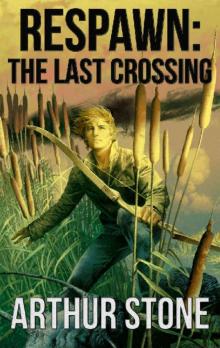 Respawn: The Last Crossing (Respawn LitRPG series Book 6)
Respawn: The Last Crossing (Respawn LitRPG series Book 6) Dark: Fearless Pioneer (Dark LitRPG book 1)
Dark: Fearless Pioneer (Dark LitRPG book 1)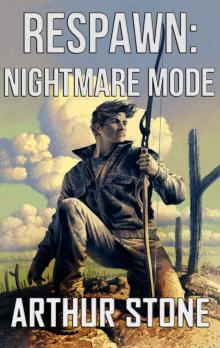 Respawn: Nightmare Mode (Respawn LitRPG series Book 4)
Respawn: Nightmare Mode (Respawn LitRPG series Book 4)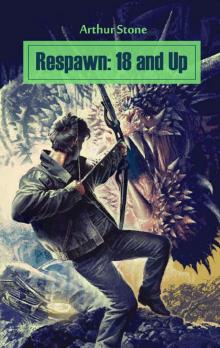 Respawn: 18 and Up (Respawn LitRPG series Book 3)
Respawn: 18 and Up (Respawn LitRPG series Book 3)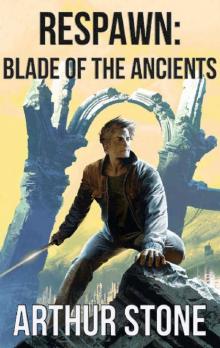 Respawn: Blade of the Ancients (Respawn LitRPG series Book 5)
Respawn: Blade of the Ancients (Respawn LitRPG series Book 5)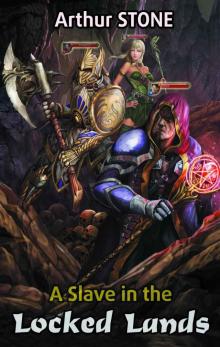 A Slave in the Locked Lands
A Slave in the Locked Lands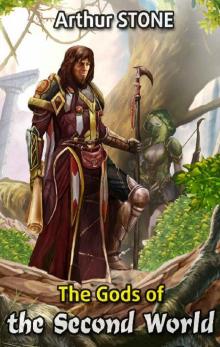 The Gods of the Second World (LitRPG The Weirdest Noob Book 3)
The Gods of the Second World (LitRPG The Weirdest Noob Book 3) S.T.Y.X. Humanhive (S.T.Y.X. Humanhive Book 1)
S.T.Y.X. Humanhive (S.T.Y.X. Humanhive Book 1)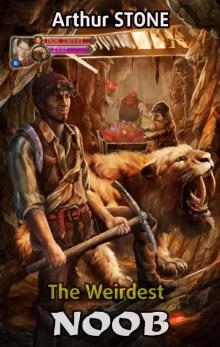 The Weirdest Noob
The Weirdest Noob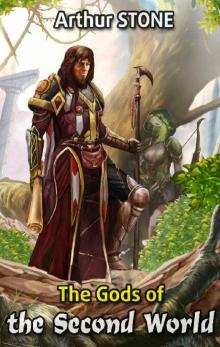 The Gods of the Second World
The Gods of the Second World S.T.Y.X. Humanhive
S.T.Y.X. Humanhive